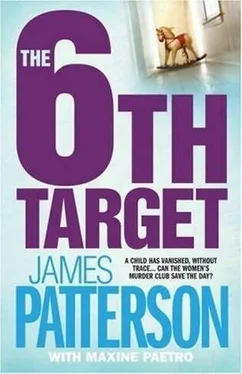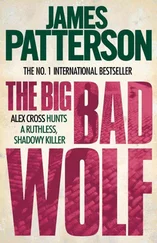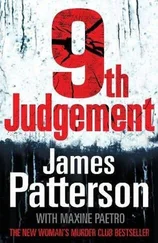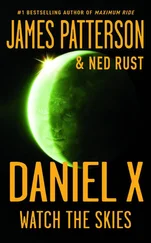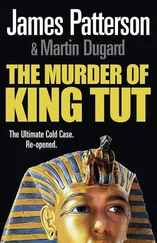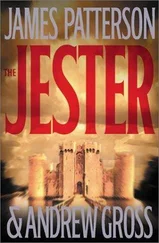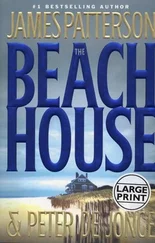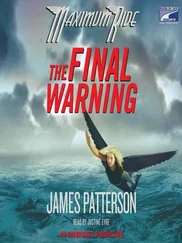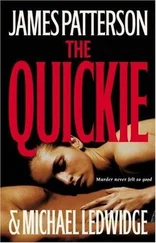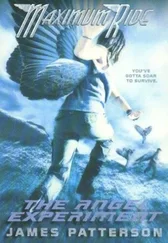" 'Weird' like how?" Conklin asked.
"He'd say to me sometimes, 'Did you hear what Wolf Blitzer just said to me?' Like the TV was talking to him, y'know? And he was getting twitchy-like, humming and singing to himself. Made management uneasy," Jones said, lightly running a hand across his T-shirt. "When he started missing work, it gave them a reason to ax him.
"I saved his books," Jones told us. He reached up to a shelf, pulled down a box, set it on the table.
I opened the flaps, saw heavy stuff in there by Jung, Nietzsche, and Wilhelm Reich. And there was a dog-eared paperback of The Origin of Consciousness in the Breakdown of the Bicameral Mind by Julian Jaynes.
I picked the paperback out of the box.
"That was his pet book," said Edison. "Surprised he didn't come back for it."
"What's it about?"
"According to Fred, Jaynes had a theory that, until about three thousand years ago, the hemispheres of the human brain weren't connected," Jones said, "so the two halves of the brain didn't communicate directly."
"And the point is?" Jacobi asked.
"Jaynes says that back then, humans believed that their own thoughts came from outside themselves, that their thoughts were actually commands from the gods."
"So Brinkley was… what?" Jacobi asked. "Hearing voices from the television gods?"
"I think he was hearing voices all the time. And they were telling him what to do."
Jones's words sent chills out to my fingertips. More than forty-eight hours had passed since the ferry shooting. While dead ends piled up, Brinkley was still out there somewhere. Taking orders from voices. Carrying a gun.
"You have any idea where Brinkley is now?" I asked.
"I saw him hanging out in front of a bar about a month ago," Jones said. "He was looking pretty ragged. Beard all grown out. I made a joke that he was returning to the wild, and he got a wacky expression on his face. Wouldn't look me in the eye."
"Where was this?"
"Outside the Double Shot Bar on Geary. Fred doesn't drink, so maybe he was living in the hotel over the bar."
I knew the place. The Hotel Barbary was one of the several dozen "tourist hotels" in the Tenderloin, rent-by-the-hour rooms used by prostitutes, junkies, and the nearly destitute. It was one step above the gutter, and not much of a step.
If Fred Brinkley had been living at the Hotel Barbary a month ago, he might still be there now.
THE WEATHERMAN SAID it would rain, but the sun was high and milky overhead. When Fred Brinkley held out his hand, he could see right through it .
He headed for the dark of the underground, jogging down the steps into the Civic Center BART, where he used to go when he still had his job.
Brinkley lowered his eyes, marking off his paces on the familiar white marble-tiled floor with black granite borders, walking steadily across the mezzanine, not looking up at the corporate slaves buying their tickets and flowers and bottled water for their commute. He didn't want to pick up any thoughts from their hamster-wheel brains, didn't want to see the prying looks coming from their hooded eyes.
He took the escalator down to the tunnels, but instead of feeling calmer, he realized that the deeper he went, the more agitated, angry, he became.
The voices were on him again, calling him names.
Ducking his head, Brinkley kept his eyes on the floor, and he sang inside his mind, Ay, ay, ay, ay, BART-a-lito-lindo , trying to quash the voices, trying to shut them down.
As soon as he got off the escalator on the third level down, he realized his mistake. The platform was packed with deadheads going home from work.
They were like thunderclouds, with their dark coats, their eyes boring into him, closing in and trapping him where he stood.
Pictures he'd seen on the wall of TVs in the electronics-shop window streamed into Fred's mind: the images of himself, shooting the people on the ferry .
He did that!
Brinkley sidled through the crowd, mumbling and singing under his breath until he stood at the edge of the platform, standing on one square only, his toes curled over the void.
Still, he felt the hate and condemnation all around him, and his own fury rose. The white tile walls seemed to pulse and billow. Fred could see, out of the corners of his eyes, people turning toward him, reading his mind.
He wanted to yell, I had to do it! Watch out. You could be next .
He stared down onto the rails, not moving or looking at anyone, keeping his hands in his pockets, the right one curled around Bucky.
They know, the voices roared in unison. They see right through you, Fred.
A sharp voice called out from behind him, " Hey !" Brinkley turned to see a woman with a sharp jaw and tiny black eyes shaking a finger at him.
"He's the one . He was on the ferry. He was there . That's the ferry shooter. Someone call the police."
Things were breaking up now. Everyone knew the bad thing he'd done.
Dog shit. Loser.
Ay, ay, ay, ayyyyyyy.
Fred pulled Bucky out of his pocket, waved it above the crowd. People all around him screamed and shrank away.
The tunnel roared.
Silver-and-blue bullet cars streaked into the station, the noise obliterating all other sound and thought.
The train stopped, and clots of people boiled out of the cars like rats, others washing back in, buffeting Fred like a tide, slamming him into a pylon.
Knocking the breath right out of him.
Freeing himself, wading against the throng, Fred made his way to the escalator. In long, bounding strides, he bolted up past the rodent people on the moving stairway, finding his way up to the air on the street.
The voice inside his head yelled, Go! Get your ass out of here !
THE DIGITAL CLOCK on the microwave read 7:08. I was physically wrung out and mentally fried after combing the Tenderloin all day, coming up with nothing more than a list of all the places where Alfred Brinkley didn't live.
I wasn't just frustrated, either. I felt dread. Fred Brinkley was still out there.
I put a Healthy Choice macaroni and cheese into the microwave, pressed the minute button five times.
As my dinner revolved, I ran the day through my mind again, searching for anything we might have overlooked in our tour of six dozen sleazy hotels, the interviews with useless desk clerks and scores of low-rent tenants.
Martha brushed up against me, and I stroked her ears, poured dog chow into a bowl. She lowered her head, wagged her plumey tail.
"You're a good girl," I said. "Light of my life."
I had just cracked open a beer when my doorbell rang.
What now?
I limped to the window to see who had the audacity to ring my bell – but I didn't know the man staring up at me from the sidewalk.
He was clean shaven, half in shadow – holding up an envelope.
"What do you want?"
"I have something for you, Lieutenant. It's urgent. I have to deliver this to you personally."
What was he? A process server? A tipster? Behind me, the microwave beeped, alerting me that dinner was ready.
"Leave it in the mailbox!" I shouted down.
"I could do that," said my visitor. "But you said on TV, 'Do you know this man?' Remember?"
"Do you know him?" I called.
"I am him. I'm the one who did it."
I HAD AN INSTANT of stunned confusion.
The ferry shooter was at my door?
Then I snapped to.
"I'll be right there!" I shouted down.
I grabbed my gun and holster from the back of a chair, clipped my cuffs to my belt. As I rounded the second-floor landing, I called Jacobi on my cell phone, knowing full well that I couldn't wait for him to arrive.
Читать дальше
